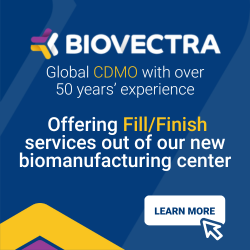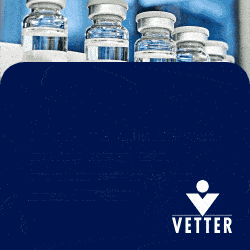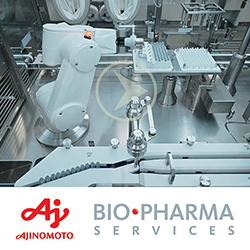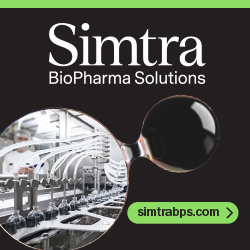8/1/2012
BD Launches Thin-Wall Needle Technology
BD Medical recently announced the launch of the BD Hyflow needle, a unique 27-gauge thin-wall needle designed for use with BD’s prefillable syringe systems.
The optimized inner diameter of the BD Hyflow needle enables injection of highly viscous drug formulations without the use of a larger needle that could be more painful for the patient. As there are an increasing number of highly viscous formulations in pharmaceutical pipelines today, new needle technologies are essential for patient comfort and device integration.
The BD Hyflow needle increases flow to facilitate use with auto injectors and infusors. This new needle technology also reduces the pressure required to inject, a critical attribute for patients with dexterity limitations. Furthermore, there is evidence to suggest that advanced needle technologies can help patients adhere to their treatment regimens.
“One critical, but often overlooked, factor in selecting a drug delivery system is the needle. As the conduit for drugs to enter the body, and the critical interface with the patient, needles can have a profound effect on the patient experience,” said Eric Borin, Vice President and General Manager –
The BD Hyflow needle has been designed and optimized to exceed ISO standards for thin wall inner diameter needles. BD is the only manufacturer of this unique 27-gauge thin-wall needle for use with a prefillable syringe. Multiple biotechnology companies have commenced stability studies and clinical evaluation with this new technology.
This is one of several new products that BD Medical – Pharmaceutical Systems plans to launch over the next 18 months to enhance the performance of prefilled syringe systems.
BD is a leading global medical technology company that develops, manufactures, and sells medical devices, instrument systems, and reagents. The company is focused on improving drug delivery, enhancing the quality and speed of diagnosing infectious diseases and cancers, and advancing research, discovery, and production of new drugs and vaccines. For more information, please visit www.bd.com.
Catalent Supplies ODTs to Otsuka, Makes Extensive Investments in
Catalent recently announced it has commenced supply to Otsuka Pharmaceutical Co., Ltd. of Abilify OD Tablets (orally disintegrating tablets, ODTs), which utilize Catalent’s Zydis fast-dissolve drug delivery technology.
Otsuka is one of the leading innovative pharmaceutical companies in
Additionally, to support the increasing demand for Zydis ODT formulations from the Japanese market, Catalent intends to make multi-million dollar investments to its Zydis ODT operations in
“We are delighted to partner with Otsuka on the launch of this important new formulation of Abilify OD,” said Dr. Ian Muir, President of Catalent’s Modified Release Technology business. “Catalent’s Zydis fast-dissolve technology has provided a tablet that is very palatable, and disintegrates within seconds in the mouth, making it very easy to take. As patient medication compliance is critical for those requiring antipsychotic therapies, Otsuka believes this new formulation will be of great assistance to patients in
“We are very excited with the growing demand for Catalent’s Zydis ODT in Japan, where many products could benefit from this type of ODT formulation,” added Mr. Hans-Joachim Rohe, President of Catalent Japan. “We have seen an increasing number of customers specifically seeking truly rapid disintegration and superior palatability in order to differentiate their products in
From drug and biologic development services to delivery technologies to supply solutions, Catalent Pharma Solutions has the deepest expertise, the broadest offerings, and the most unique technologies in the industry. For more information, visit www.catalent.com.
Adoption of Prefillable Syringes Rising Notes Frost & Sullivan
The prefillable syringes (PFS) market in
New analysis from Frost & Sullivan (http://www.pharma.frost.com), Analysis of the European Prefillable Syringes Market, finds that the total European demand for glass prefillable syringes for all therapeutic applications combined was roughly 1.63 billion units in 2011. The demand for PFS is expected to grow to approximately 3.62 billion units by 2018 in
“The major growth drivers for PFS are factors such as convenience for healthcare professionals and patients, enhanced product differentiation, lower overfill which helps reduce costs and maximise yield, reduced risk of dosage error and contamination,” said Frost & Sullivan Program Manager Ranjith Gopinathan. “Moreover, increasing use of biologics as a therapy for various disease indications has bolstered the growth of parenteral delivery.”
There is considerable demand for syringes with safety features. Safety syringes like the Luer lock or syringes with additional safety features are gaining favorable opinion among policy makers and healthcare providers in
However, cost is a major restraining factor for PFS demand. Cost of prefillable syringes is higher when compared to other delivery routes, such as vials and ampoules. Moreover, safety-enabled syringes like Luer Lock and those with proprietary safety features have premium pricing.
Nevertheless, the strong growth in the self-injection market, preference for added safety features, and the growing market for seasonal influenza vaccines, pitch a strong case for PFS demand. Furthermore, new regulatory norms require drugs with shelf-life of more than 2 years, to be in glass PFS.
“Overall, PFS with customized dimensions, competitive pricing, product innovation with focus on safety features, and timely delivery would be key success factors for market participants,” added Mr. Gopinathan.
If you are interested in more information on this study, please send an e-mail with your contact details to Janique Morvan, Corporate Communications, at janique.morvan@frost.com.
Analysis of the European Prefillable Syringes Market is part of the Life Sciences Growth Partnership Service program, which also includes research in the following markets: Analysis of the European Thrombosis Therapeutics Market, European Vaccines Market, among others. All research included in subscriptions provide detailed market opportunities and industry trends that have been evaluated following extensive interviews with market participants.
Frost & Sullivan, the Growth Partnership Company, works in collaboration with clients to leverage visionary innovation that addresses the global challenges and related growth opportunities that will make or break today’s market participants. Its “Growth Partnership” supports clients by addressing these opportunities and incorporating two key elements driving visionary innovation: The Integrated Value Proposition and The Partnership Infrastructure. For more information, visit www.frost.com.
Caisson Biotech Appoints New CEO & President
Caisson Biotech, L.L.C. recently announced it has appointed Glenn E. Nedwin, PhD, as Chief Executive Officer and President. Former Caisson CEO, Thomas Harlan, who is CEO of Emergent Technologies, Inc., the innovation solutions company that funds and manages Caisson Biotech, stated that Caisson’s new partnerships and expansive growth drove the appointment of Dr. Nedwin, a seasoned veteran with an exceptional track record in strategic leadership and building company value.
“Caisson’s recent multi-million dollar technology access and license agreement with Novo Nordisk and increasing number of deals in the pipeline made the timing right to bring Dr. Nedwin on board,” explained Mr. Harlan. “Glenn’s comprehensive background in operations, business and product development, and market focus will take Caisson to the next level.”
Dr. Nedwin has more than 30 years experience in the pharmaceutical and biotechnology industries. He has held industry-influencing scientific and corporate management positions, most notably as President of Novozymes, Inc. and Executive Vice President of the Genencor Division of Danisco (recently acquired by DuPont). At Genencor, he was responsible for the $330M+ Technical Enzyme Business Unit and was a member of the Danisco Leadership Forum. While with Genentech, Dr. Nedwin was a co-inventor and key team member that discovered TNF-alpha and -beta, among other human cytokines.
“I am very excited to join Caisson Biotech as CEO and President,” said Dr. Nedwin. “Caisson’s novel, natural HEPtune drug delivery technology for improved drug performance perfectly fits the needs of the pharmaceutical industry. HEPtune offers the ability for drug half-life extension and improvements in performance, product lifecycle management and patient quality of life. We are seeking additional corporate partners for our technology, and we intend to  become a leader in drug delivery.”
become a leader in drug delivery.”
Dr. Nedwin brings to Caisson substantial domestic and international experience with start-up, growth, and global organizations in the areas of new market identification, innovation, R&D, P&L, sales, and marketing.
Caisson Biotech is a wholly owned subsidiary of Heparinex, L.L.C. Caisson uses novel, heparosan-based conjugates to enhance the therapeutic properties of pharmaceuticals by increasing product half-life, reducing immunogenicity and increasing stability. The newly invented drug delivery platform was developed by Chief Scientist Paul L. DeAngelis, PhD, who is also a Professor at the University of Oklahoma Health Sciences Center. Caisson is funded and managed by Emergent Technologies, Inc. To learn more about Caisson, visit www.caissonbiotech.com.
Emergent Technologies, Inc. (Emergent ) is a leading innovation solutions company focused on partnering early stage technologies. Emergent’s diverse business and technical team, along with its unique innovation process of transforming scientific breakthroughs into technology platforms with multiple applications, maximizes the value of promising ideas and underutilized intellectual properties without the risk associated with commercial development. For more information, visit www.emergenttechnologies.com.
pSivida Announces Evaluation Agreement for Protein/Antibody Delivery System
pSivida Corp. recently announced it has signed a funded technology evaluation agreement with a leading global biopharmaceutical company to evaluate pSivida’s Tethadur protein/antibody delivery technology in the field of ophthalmology.
Tethadur is an application of pSivida’s BioSilicon technology platform designed to provide sustained delivery of large biologic molecules, including proteins, antibodies, and peptides. Tethadur utilizes an injectable, bioerodible, nanostructured, porous BioSilicon material for drug delivery. The sizes of the pores in the BioSilicon material are manufactured using nanotechnology to accommodate specific protein, peptide, or antibody molecules that are then released on a sustained basis over time as the material bioerodes.
“This is our first commercial agreement for Tethadur, based on BioSilicon, our second key technology platform, following our three approved products utilizing our Durasert technology platform. We are very pleased to be entering into this evaluation agreement with a global leader in the field,” said Dr. Paul Ashton, President and CEO of pSivida Corp. “A sustained delivery system for these types of molecules would offer a significant clinical advance in the ophthalmic area where injections of protein based drugs into the eye every 1 or 2 months are sometimes required.”
pSivida has developed three of the four sustained-release devices for retinal diseases that have been approved in either the
pSivida Corp., headquartered in
Biotech Investor Raises $2.6-Billion VC Fund
New Enterprise Associates, Inc. (NEA), a leading global venture capital firm, recently announced the official close of its fourteenth fund with $2.6 billion in total committed capital. The fund, one of the largest venture funds ever raised, brings NEA’s total committed capital to more than $13 billion across all funds.
“NEA is deeply grateful for the continued support of many longtime limited partners, as well as some new ones, who believe that a diversified, global strategy is the path forward for venture capital,” said Peter Barris, NEA Managing General Partner. “Our industry has been profoundly transformed in recent years, and a new model has quietly gained traction where more dollars are being committed to large funds that are global and diversified in nature.”
Today the 10 largest venture capital firms account for nearly one-third of dollars coming into the venture industry, with the concentration of capital doubling over the past decade as the overall VC market contracts. This new fund marks NEA’s third consecutive $2.5-billion-plus fund, a reflection of the firm’s scale and increasingly global focus.
“The venture capital ecosystem needs both large and small firms to thrive,” said Mr. Barris. “But companies are scaling earlier and faster than ever before in a highly competitive global landscape, and they need partners with a global footprint and deep pockets to succeed.”
First led into emerging markets by its portfolio companies, today NEA has affiliate offices in
Consistent with its strategy in recent funds, NEA will continue to invest in information technology, healthcare, and energy technology. Within the information technology sector, areas of particular interest include enterprise software and systems, education, consumer technology, and digital media. The firm’s healthcare investing strategy continues to focus on opportunities in the biopharma, healthcare services, and medical device sectors.
New Enterprise Associates, Inc. (NEA) is a leading venture capital firm focused on helping entrepreneurs build transformational businesses across multiple stages, sectors, and geographies. With approximately $13 billion in committed capital, NEA invests in information technology, healthcare, and energy technology companies at all stages in a company’s lifecycle, from seed stage through IPO. For more information, visit www.nea.com.
Total Page Views: 1647

















